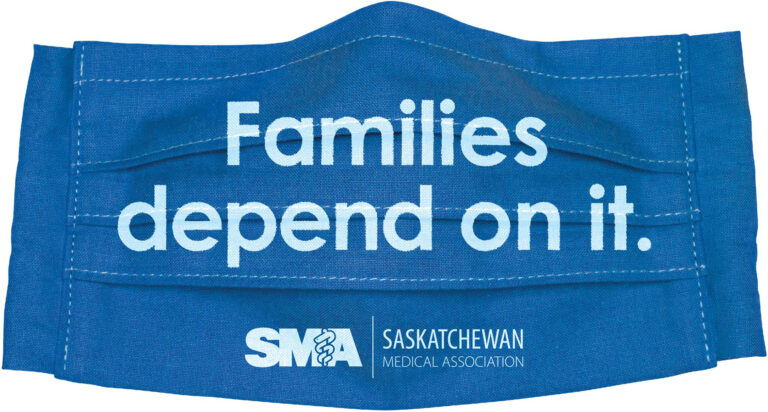
The Saskatchewan Medical Association (SMA) has endorsed the provincial government’s mandatory mask policy, saying it will help slow the spread of COVID-19.
The SMA passed a resolution calling for a mandatory mask wearing policy during their Fall Representative Assembly on Oct. 31. SMA vice-president Dr. Eben Strydom said masks are not a fool-proof method to fighting the virus, but they are still effective.
“Masks on their own are obviously not the be all and end all, but they are important factors in the general approach to reducing risks,” Strydom said during an interview on Thursday. “We are really feeling that if everybody wears masks in situations where they cannot physically distance, it will make a difference and keep the population safe and keep the numbers down.”
Residents in Prince Albert, Saskatoon and Regina must wear masks in public spaces, starting today. The policy is in effect for the next 28 days, and Strydom said it’s impossible to know how long it will be necessary.
He said the masks help stop the spread of droplets, which escape the mouth while talking, laughing or sneezing. Those droplets sit on surfaces, where others can come in contact with them.
Not all masks are equally effective. Strydom, who practices in Melfort, encouraged residents to wear triple-layered masks with dense fabrics. However, he also advised residents to continue physical distancing while also avoiding large public gatherings. Masks, he said, are just one part of public safety.
Strydom added that residents in Prince Albert and the surrounding areas are generally doing a good job of stopping the spread of COVID-19.
“I think we’ve had some outbreaks and we know why that happened,” he explained. “Those are being addressed and followed up. I think we learn more every day about this virus and the pandemic. This knowledge, we just need to apply it, and with everybody’s help we can definitely make a big difference here.”
“During the first part of the pandemic, the public really rallied, and the successes that we had is testimony to the effort of the public,” he added. “We applaud them for that, and we just need to continue with that to limit risk to our communities and the vulnerable.”
The SMA passed the mandatory mask policy resolution at the behest of the Student Medical Association of Saskatchewan (SMSS). SMSS representatives said they felt obligated to speak out.
“I believe that as members of society, and future physicians, our responsibility is to not only protect ourselves, but to look out for the best interests of our community,” said Ava Bayat, a first-year medical student at the University of Saskatchewan, and junior rep on the SSMA’s Government Affairs and Advocacy Committee. “As easy way to do this is by ensuring that we are all wearing masks in public places. Mandatory masking is a low-cost, high feasibility measure that can help protect our loved ones.”
The SMA isn’t the first medical group to publicly support a mandatory mask policy. Back in July, the Saskatchewan Union of Nurses (SUN) called for mandatory masking in indoor public spaces when social distancing isn’t possible.
At the time, SUN president Tracy Zambory said wearing masks would help keep people alive.
“It’s a very simple, easy thing for people to do, and if it’s made mandatory, perhaps it will help people understand the gravity of the situation and maybe kind of reinvigorate that vigilance,” Zambory said in a media release.
Not all Saskatchewan residents are enthused with the new mandatory mask guidelines. A private Facebook group called No Masks Saskatchewan has more than 4,600 members since being created in August. The group describes itself as Saskatchewan citizens who are deeply concerned about the heavy use of masks, and about the governments and media outlets that promote them.
“We adamantly oppose any mask requirements as they are contrary to our nature,” the group’s About Section reads. “This is not normal, and the promotion of such a thing is irresponsible, reckless and not healthy for our immunity.”
The World Health Organization (WHO) advised against wearing masks at the beginning of the COVID-19 outbreak because there was no evidence they would help. However, they’ve since reversed that policy.
Dr. Mike Ryan, the WHO health emergencies program executive director, told the media on March 30 that masks may actually hurt rather than help patients if they do not fit properly. The WHO reversed that position in June, when they suggested people with underlying medical conditions and seniors over the age of 60 start wearing them.
The WHO suggests using three-layer masks, and says they should only be changed if wet or soiled.
